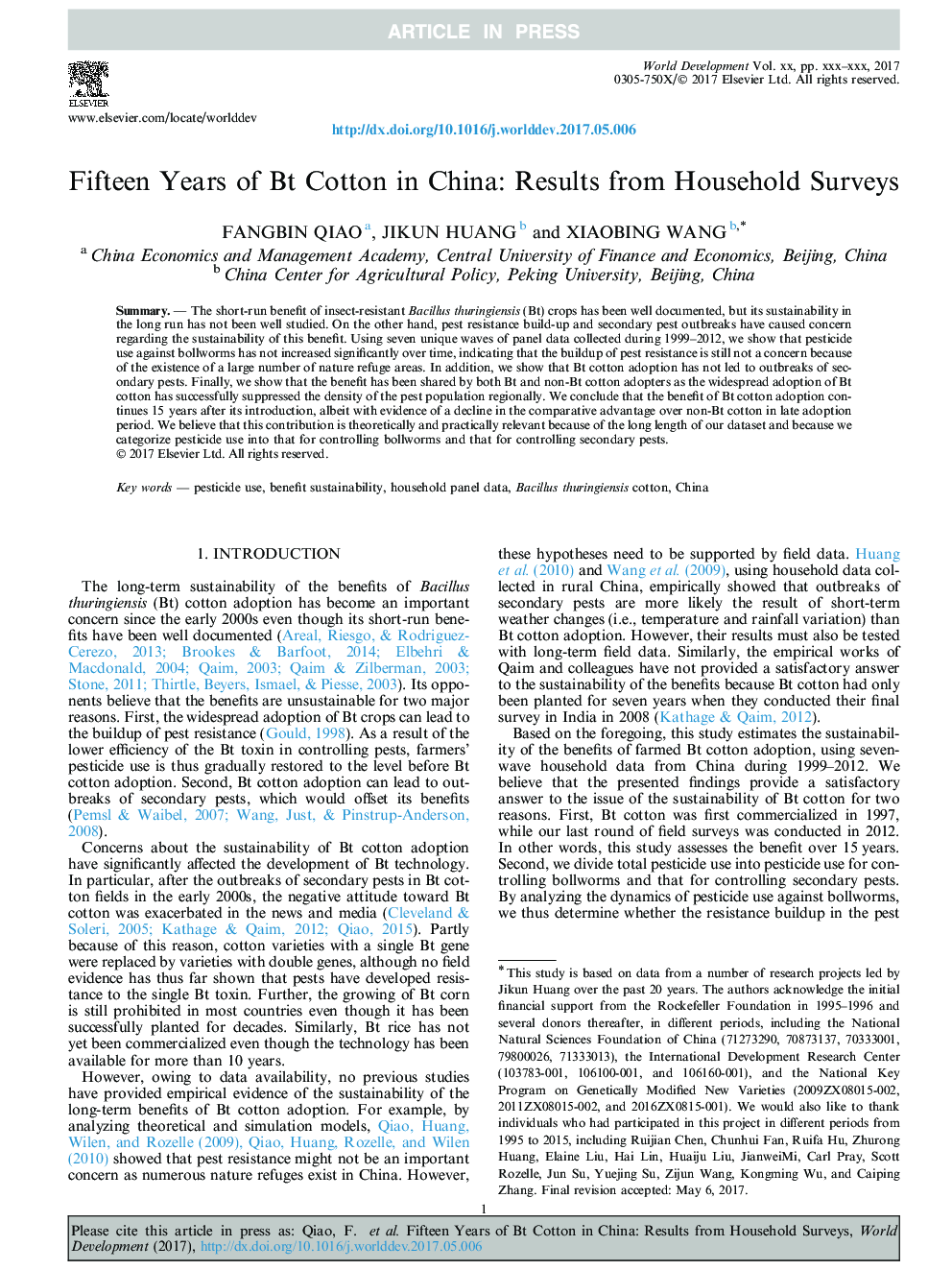| Article ID | Journal | Published Year | Pages | File Type |
|---|---|---|---|---|
| 5105150 | World Development | 2017 | 9 Pages |
Abstract
The short-run benefit of insect-resistant Bacillus thuringiensis (Bt) crops has been well documented, but its sustainability in the long run has not been well studied. On the other hand, pest resistance build-up and secondary pest outbreaks have caused concern regarding the sustainability of this benefit. Using seven unique waves of panel data collected during 1999-2012, we show that pesticide use against bollworms has not increased significantly over time, indicating that the buildup of pest resistance is still not a concern because of the existence of a large number of nature refuge areas. In addition, we show that Bt cotton adoption has not led to outbreaks of secondary pests. Finally, we show that the benefit has been shared by both Bt and non-Bt cotton adopters as the widespread adoption of Bt cotton has successfully suppressed the density of the pest population regionally. We conclude that the benefit of Bt cotton adoption continues 15Â years after its introduction, albeit with evidence of a decline in the comparative advantage over non-Bt cotton in late adoption period. We believe that this contribution is theoretically and practically relevant because of the long length of our dataset and because we categorize pesticide use into that for controlling bollworms and that for controlling secondary pests.
Related Topics
Social Sciences and Humanities
Economics, Econometrics and Finance
Economics and Econometrics
Authors
Fangbin Qiao, Jikun Huang, Xiaobing Wang,
